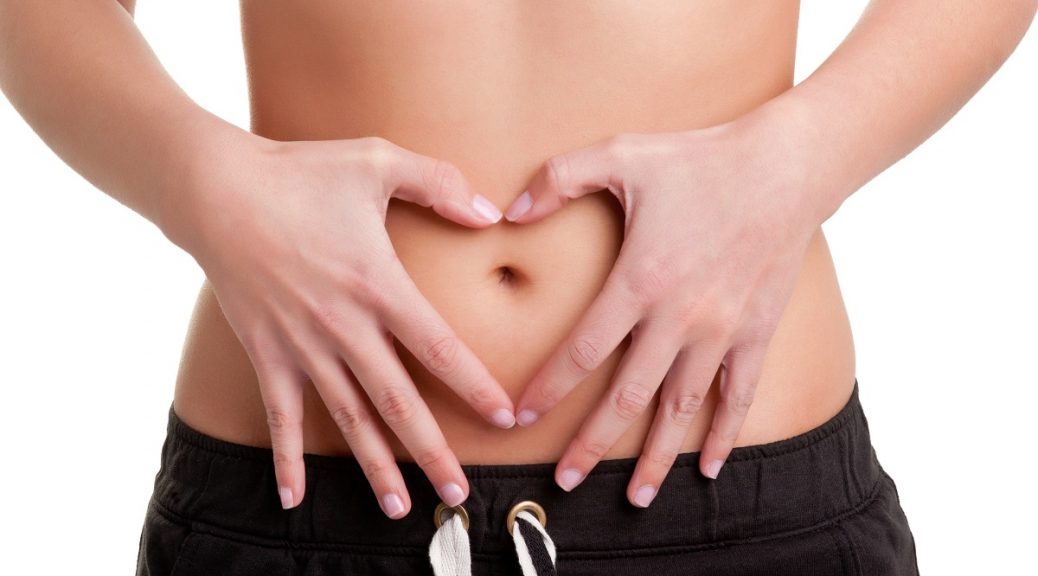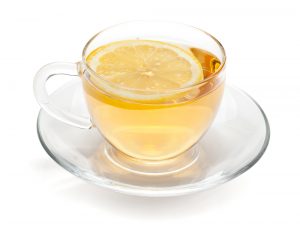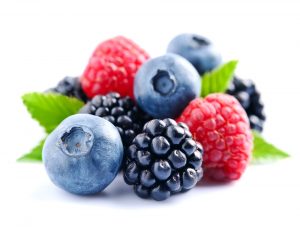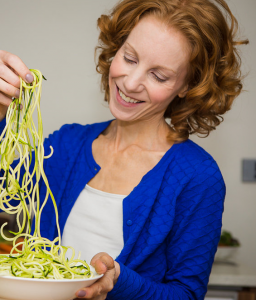
Natural Remedies for a Bloated Tummy
By nutritional therapist Christine Bailey
You know that feeling. Your tummy looks like you’re three months pregnant, it’s puffy and sore and you can’t fit into your favourite jeans. Most of us experience a bit of bloating from time to time, especially after a blow out meal but for some it’s an ongoing problem. Switching to low FODMAP foods can be an effective way to reduce bloating.
What are high FODMAP Foods?
FODMAP stands for Fermentable Oligosaccharides, Disaccharides, Monosaccharides and Polyols. These are short-chain carbohydrates or sugars which are poorly absorbed in the small intestine and readily fermented by gut bacteria producing gas which makes us bloat. They can also affect bowel motility which is why eating these foods can often send you rushing to the bathroom too.
FODMAPs include lactose found in many dairy products and fructose from certain fruits, juices and sweeteners (e.g honey). The oligosaccharides include fructans and the glacto-oligosaccharides (GOS) found in wheat and gluten products (breads, cereals and pasta) vegetables such as garlic and onions, beans and pulses. Polyols are sugar alcohols which are often added to foods, drinks and chewing gum as sweeteners (e.g sorbitol, mannitol, xylitol, polydextrose, isomalt, ethyritol).
Removing these high FODMAP foods temporarily from your diet may help alleviate many of your digestive symptoms.
Other Natural Solutions
Here are some other great tips to turn your tum from bloated to beautiful:
Drink Up
Drinking water may not be the first thing on your mind when your belly’s swollen but drinking 6-8 glasses of water daily can really help flush out toxins from your system and stimulate your digestive tract. Ditch the fizzy sodas and carbonated water and go for plain bottled water or try a glass of hot water with a squeeze of lemon. There are also a great range of herbal teas which can help relieve fluid retention. Try nettle and dandelion tea or dandelion coffee, Cat’s Claw or blends containing fennel, peppermint, hawthorn and horsetail. Skip the chewing gum too which can often result in bloating.
Salt Alert
A salty diet increases the likelihood of developing water retention as your cells hold on to more water in an attempt to balance sodium and potassium levels. But even if you don’t add salt to food you may well be consuming too much. In fact, 80% of the salt in our diet comes from packaged, processed foods, takeaways and restaurant food. Common staples such as bread, cheese, biscuits, sauces and cereals all contain hidden salt. Instead focus more on freshly prepared dishes and plenty of vegetables and some fruit which are loaded with potassium to help the kidneys excrete sodium. Top of the list are bananas, mangos, melons, papaya, potatoes, spinach, tomatoes and avocado.
Hormonal Help
Many women experience bloating at some point during their menstrual cycle. For most this is due to higher levels of the hormone progesterone in the week or so before the period. If this is a factor you may also notice fluid retention elsewhere such as breasts, face, ankles and hands. Balancing the hormones progesterone and oestrogen may bring relief so include phytoestrogen rich foods like flaxseed, tofu, alfalfa sprouts, fennel, celery and gluten free oats.
Sugar Savvy
Sugary foods and drinks, artificial sweeteners and refined carbohydrates (breads, pasta, rice, cakes, pastries etc) can play havoc with your digestion and contribute to bloating. Firstly, sugar can make the digestive tract sluggish but more importantly they promote the growth of not so helpful bacteria in your gut which ferments to produce excess gas! Reduce sugar in all its forms meaning skip those juices and smoothies and avoid dried fruit. There is nothing wrong with a couple of piece of fruit but choose low FODMAP berries, citrus fruits or bananas.
Tune Up Digestion
For many people bloating is often a result of your digestive system struggling to break down certain foods and eliminating waste. If you feel heavy and full after eating, try supplementing with a digestive enzyme to see if that improves your symptoms. If fatty foods cause you problems you may need to support bile flow. Supplements containing beetroot or artichoke may be helpful. For others constipation can exacerbate bloating. If this is the case try including more soluble in your diet like ground flaxseed, gluten free oats as well as plenty of veggies and keep hydrated through the day.
Time to be Mindful
Over-eating, eating on the run or late at night, not chewing food properly, even talking while eating can all lead to trapped wind and bloating. Slow down and be mindful about what you are eating and how much you consume.
 About Christine Bailey
About Christine Bailey
Christine is an award-winning nutritionist, chef and author. With a passion for creating delicious nourishing recipes, Christine has a reputation for transforming people’s health and love of real food. As well as seeing clients and writing for national press, Christine runs ‘Nourish’ cookery classes including popular hands-on days for children. Christine is an inspiring nutritional chef well known for her engaging style and enthusiasm.
Christine is the author of numerous health and recipe books including ebooks on paleo eating and gluten-free recipes. Her books include her popular Supercharged Juices and Smoothies, The Juice Diet Book, The Raw Food Diet Book and Eat to Get Younger. Christine has particular specialisms in paleo diets, allergy free cooking, digestive health, coeliac disease and other autoimmune conditions, allergies, healthy ageing and weight loss.
For more information visit her website www.christinebailey.co.uk or follow her on Facebook and Twitter